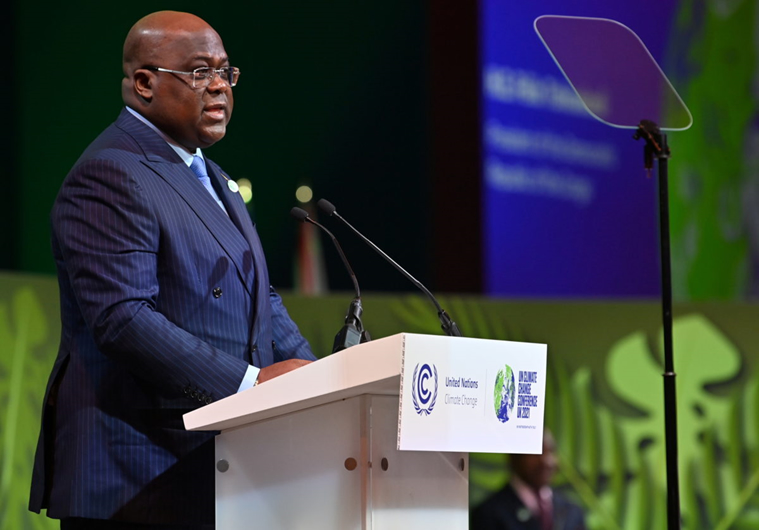New IPPG report to assess Africa’s Demands, Performance, and Negotiation Strategy at COP 26
Africa is least responsible for the greenhouse gas (GHG) emissions changing our climate but most vulnerable and most exposed to the adverse effects of climate change. Increasing temperatures and sea levels, changing precipitation patterns, and more extreme weather are already threatening human health and safety, food and water security, population displacement, and socio-economic development across the continent.

Kenyan President, Uhuru Kenyatta addressing world leaders at COP 26
Climate change is also projected to significantly decrease Africa’s GDP through mechanisms such as low as lowered crop yields, reduced agricultural labor and productivity, and damage to human health. If the world fails to step up climate action, the current climate trajectory could force 100 million Africans into extreme poverty by 2030.
Over 25 African leaders spoke at the just ended Conference of Parties (COP 26) to the UNFCCC in Glasgow demanding for climate justice and greater support from richer nations to enable African economies adapt to climate change. Despite the strong African presence and explicit calls for climate finance, funding for adaptation, and drastic emission cuts from developed economies, only a few of their requests were featured in the non-binding final agreement, announced on November 13, which has be described by many experts and climate activists as a fragile agreement.

Congolese President Felix Tshisekedi addressing world leaders at COP 26
All eyes are now turning to Egypt for the 27th session of the Conference of the Parties (COP 27) from 7-18 November 2022. COP 27 presents a lifetime opportunity for Africa and all developing economies to shape global climate action. According to Egypt’s President Abdel Fattah al-Sisi, the government of Egypt hosting COP 27 on behalf of Africa would work to make the conference “a radical turning point in international climate efforts in coordination with all parties, for the benefit of Africa and the entire world,”.
What were the demands of African governments at COP 26? What should be the demands of African governments at COP 27? How does African governments ensure that their demands are met at COP 27? How can Africa strategize to redefine global climate action for a win-win results through COP 27?
A new IPPG climate policy report to be soon released assesses Africa’s representation, performance, demands, and negotiation strategy at COP 26. Based on the assessment, the report consolidates the demands and priorities of African government in the short to long term to recommend the action plan, preparations, and consultations needed for Africa to present a common front at COP 27 and to make COP 27 a landmark history in climate action for all developing economies.

 Previous Post
Previous Post Next Post
Next Post